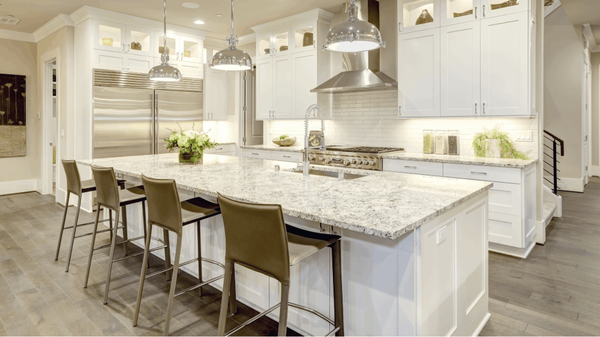What Every Buyer Should Know: Choosing Between FHA vs. Conventional Loans

When it comes to choosing the right mortgage, buyers often find themselves comparing FHA loans and conventional loans. Both options have their unique benefits and eligibility criteria, which can make the decision a bit overwhelming. Whether you are a first-time homebuyer or a seasoned real estate investor, understanding these differences is crucial to making an informed choice that best suits your financial situation.
Let’s explore the key distinctions between FHA loans and conventional loans. We’ll focus on important aspects such as eligibility requirements, down payments, mortgage insurance, loan limits, and property standards. This will help you make an informed decision about which option may be best for you but every situation is different and it’s a good idea to talk about your unique situation with your lender.
- Eligibility Requirements: Credit Scores and Debt-to-Income Ratios
FHA Loans
- FHA loans are backed by the Federal Housing Administration, making them more accessible for borrowers with lower credit scores.
- A minimum credit score of 580 is needed to qualify for a 3.5% down payment. Those with scores between 500-579 can still qualify but will need a 10% down payment.
- The FHA also allows higher debt-to-income (DTI) ratios, often up to 50% or more, which can benefit borrowers with significant existing debt.
Conventional Loans
- Conventional loans, not insured by a federal agency, require higher credit scores—typically a minimum of 620.
- These loans prefer a lower DTI, ideally around 36%, although some lenders may allow ratios up to 50% under certain conditions.
- Down Payment Requirements and Flexibility
FHA Loans
- FHA loans allow for lower down payments, starting at 3.5% if the borrower meets the minimum credit score criteria.
- The flexible down payment options make FHA loans attractive to first-time homebuyers or those who haven’t saved a large amount.
Conventional Loans
- Conventional loans offer down payments as low as 3%, but usually require a higher credit score to qualify for the lowest down payment thresholds.
- These loans are appealing to buyers with good credit who want to minimize upfront costs.
- Mortgage Insurance: Costs and Duration
FHA Loans
- FHA loans require mortgage insurance premiums (MIP) regardless of the down payment size. This includes an upfront fee (typically 1.75% of the loan amount) and annual premiums that range from 0.15% to 0.75% of the loan balance.
- The insurance remains for the life of the loan if the down payment is less than 10%. For those who put down 10% or more, the insurance lasts for 11 years.
Conventional Loans
- Private mortgage insurance (PMI) is required for conventional loans with down payments less than 20%.
- Unlike FHA loans, PMI can be canceled once the borrower achieves 20% equity in the home, making it potentially less costly over the life of the loan for those with strong credit profiles.
- Interest Rates and Loan Costs
FHA Loans
- FHA loans often feature lower interest rates, which can make them initially cheaper. However, the mandatory mortgage insurance can offset these savings over time.
- Borrowers should calculate how quickly they can build equity; if it takes longer than 11 years, the insurance costs could negate the benefits of the lower interest rate.
Conventional Loans
- Conventional loan rates are influenced by the borrower’s credit score and market conditions.
- For those with higher credit scores, conventional loans typically offer competitive rates without the long-term insurance costs associated with FHA loans.
- Loan Limits: How Much Can You Borrow?
FHA Loans
- FHA loan limits vary by county, ranging from $498,257 in low-cost areas to $1,149,825 in high-cost markets.
- These limits are adjusted annually and can vary significantly depending on the region.
Conventional Loans
- The conforming loan limit for conventional loans in 2024 is set at $766,550 in most areas. Loans that exceed this amount are considered jumbo loans and come with stricter qualifications.
- Property Standards and Usage Flexibility
FHA Loans
- FHA loans require properties to meet strict safety and livability standards. This includes a thorough appraisal process that assesses both value and condition.
- FHA loans are intended for primary residences only. They can be used for multifamily properties, but the borrower must occupy one of the units.
Conventional Loans
- Conventional loans have more lenient property standards, focusing primarily on market value.
- They can be used for primary residences, vacation homes, or investment properties, offering more flexibility in property use.
- Refinancing Options: Simplified vs. Standard
FHA Loans
- FHA offers a streamlined refinancing option with minimal documentation requirements, making it a straightforward process for eligible borrowers.
- No appraisal or income verification may be required, though residency must be verified.
Conventional Loans
- Refinancing a conventional loan typically involves a more extensive documentation process, including income verification, credit checks, and a new appraisal.
- However, the potential for dropping PMI and securing better rates can make the effort worthwhile.
Choosing the Right Loan for You
When deciding between FHA and conventional loans, it’s important to consider your financial profile, credit history, down payment capability, and long-term goals. FHA loans are often better suited for those with lower credit scores or higher DTIs, while conventional loans may be a better fit for those with strong credit and the ability to make a larger down payment.
Consulting with a mortgage loan officer can help you understand the nuances of each option and guide you to the best choice based on your individual circumstances. Remember, the goal is to find a loan that not only helps you buy a home but also aligns with your financial future.
For military personnel and veterans, VA loans offer another great option with no down payment, and those in rural areas might benefit from USDA loans. Always explore all available avenues to ensure you’re making the best decision for your unique situation.
Have Questions?
If you have questions or want to learn more about your mortgage options, reach out to Luxe Omni. Our team can help you find the best lenders for your needs.
Categories
Recent Posts











